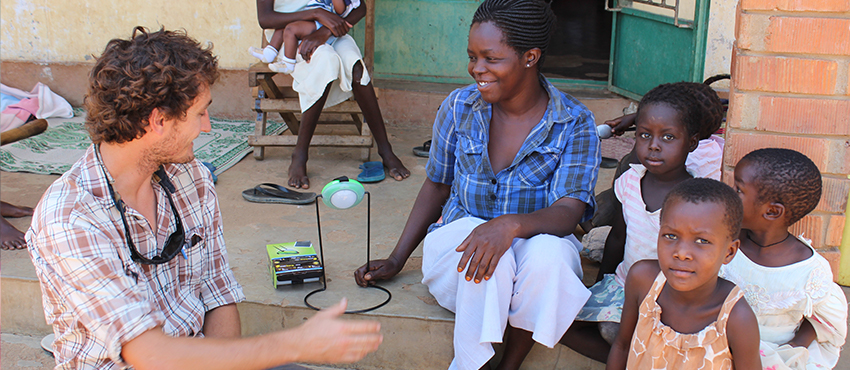
Creating, sharing, and using collaborative research practices, actionable findings, and practical solutions to address global poverty challenges.
The interdisciplinary research team designs and implements a variety of studies in collaboration with organizations and local community members around the world in several sectors. D-Lab is committed to ensuring that its research conforms to the principles of Lean Research: rigor, respect, relevance, and right-sizing.
Thematic Areas of Focus
D-Lab’s research team specializes in sectors relevant to developing world contexts including food, water, and energy, and the intersection of these sectors.
Types of Studies
D-Lab generates and disseminates knowledge, findings, and resources through studies in the following areas:
- Need, asset, and market assessments. Characterizing the local context and market in the communities where D-Lab works.
- Technology evaluation and development. Evaluating, improving, and developing technologies and services for performance, affordability, and adoption.
- Evaluation of distribution strategies. Identifying appropriate delivery strategies for technologies and services.
- Assessment of innovation systems and approaches. Describing, modeling, and evaluating local innovation processes and ecosystems and participatory design processes.
Approach
- Lean. The team applies the principles of Lean Research: rigor, respect, relevance, and right-sizing. Created in collaboration with colleagues at Tufts University, Lean Research is an approach to research and monitoring and evaluation in the contexts of global poverty and humanitarian work, which seeks to improve the quality of information gathered, increase the relevance of findings, promote actionable decisions, and enable the process to benefit stakeholders.
- Collaborative. D-Lab collaborates with researchers, practitioners, faculty members, students, and community members at MIT and beyond. The team works closely with non-governmental institutions, social enterprises, corporations, foundations, multilateral and bilateral institutions, and universities to design and implement high-quality research projects that generate relevant and actionable knowledge, findings, and resources.
- Interdisciplinary. D-Lab’s research is interdisciplinary. The project teams are often comprised of researchers in the fields of engineering, social science, and the sciences.
- Integrated: The research program is also integrated with the other programs within D-Lab. The Research, Academics, and Innovation Practice programs work together to define research questions and design programs. Findings from research inform the continual development of the Education and the Innovation Practice programs.
Methods
D-Lab employs a variety of methods in its research including both qualitative and quantitative techniques such as interviews, focus groups, surveys, observation, immersion, and sensors.
Core Research Team
Kendra Leith, Associate Director for Research
Kim Vandiver, Faculty Director for Research

